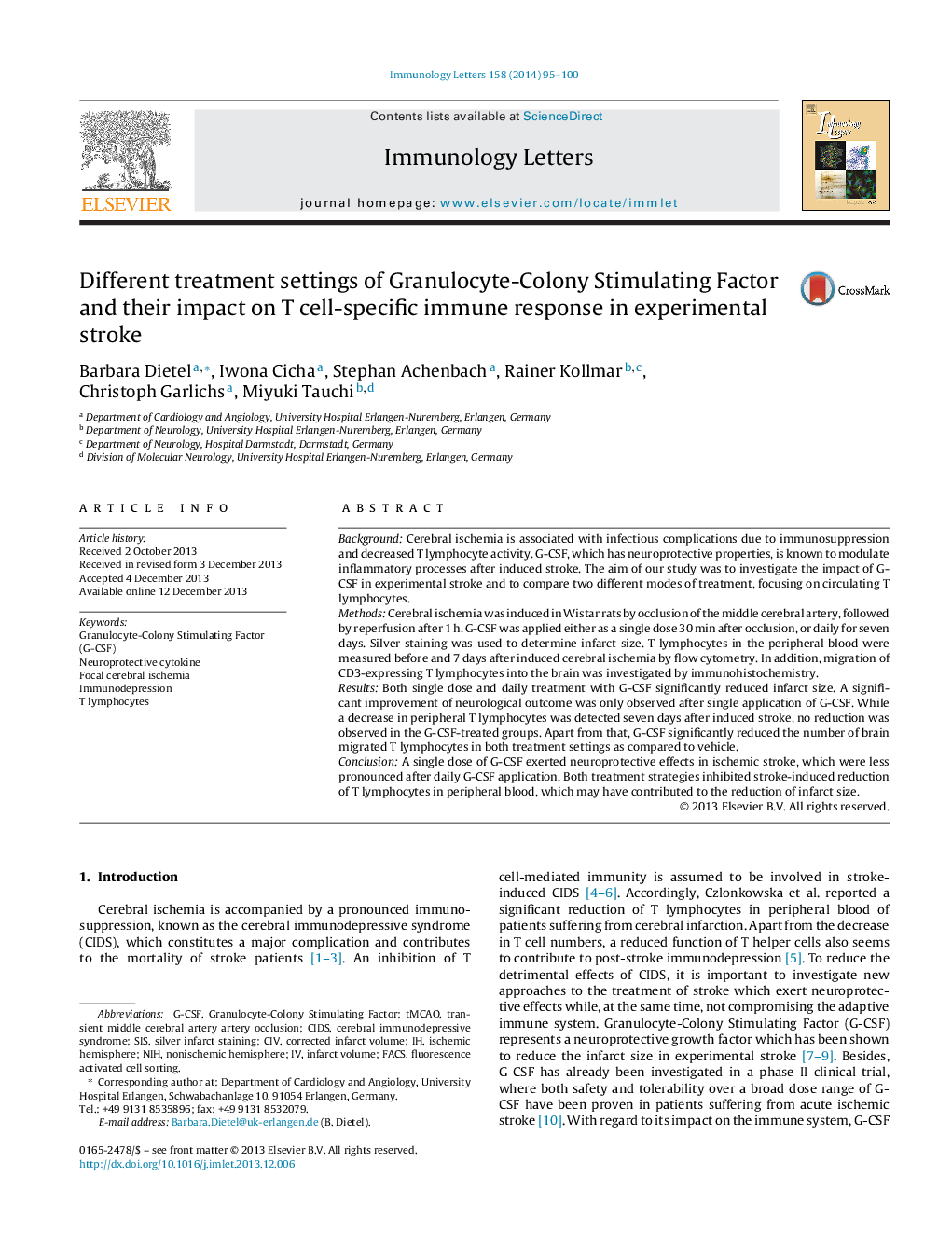| کد مقاله | کد نشریه | سال انتشار | مقاله انگلیسی | نسخه تمام متن |
|---|---|---|---|---|
| 3355451 | 1591560 | 2014 | 6 صفحه PDF | دانلود رایگان |

• Both single and daily application of G-CSF reduce the infarct size in ischemic rats.
• Single application of G-CSF is superior compared to the daily mode of application.
• Stroke-induced reduction of T lymphocytes in peripheral blood is inhibited by G-CSF.
• Inhibition of peripheral T lymphopenia is associated with reduced cerebral T cells.
BackgroundCerebral ischemia is associated with infectious complications due to immunosuppression and decreased T lymphocyte activity. G-CSF, which has neuroprotective properties, is known to modulate inflammatory processes after induced stroke. The aim of our study was to investigate the impact of G-CSF in experimental stroke and to compare two different modes of treatment, focusing on circulating T lymphocytes.MethodsCerebral ischemia was induced in Wistar rats by occlusion of the middle cerebral artery, followed by reperfusion after 1 h. G-CSF was applied either as a single dose 30 min after occlusion, or daily for seven days. Silver staining was used to determine infarct size. T lymphocytes in the peripheral blood were measured before and 7 days after induced cerebral ischemia by flow cytometry. In addition, migration of CD3-expressing T lymphocytes into the brain was investigated by immunohistochemistry.ResultsBoth single dose and daily treatment with G-CSF significantly reduced infarct size. A significant improvement of neurological outcome was only observed after single application of G-CSF. While a decrease in peripheral T lymphocytes was detected seven days after induced stroke, no reduction was observed in the G-CSF-treated groups. Apart from that, G-CSF significantly reduced the number of brain migrated T lymphocytes in both treatment settings as compared to vehicle.ConclusionA single dose of G-CSF exerted neuroprotective effects in ischemic stroke, which were less pronounced after daily G-CSF application. Both treatment strategies inhibited stroke-induced reduction of T lymphocytes in peripheral blood, which may have contributed to the reduction of infarct size.
Journal: Immunology Letters - Volume 158, Issues 1–2, March–April 2014, Pages 95–100